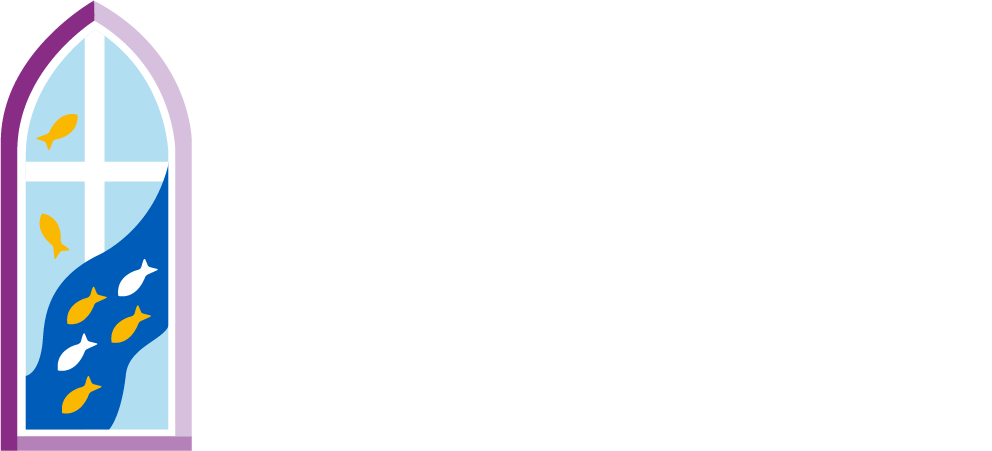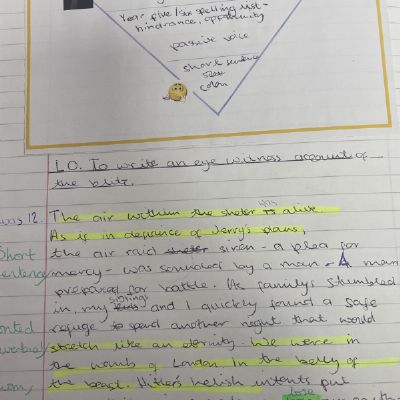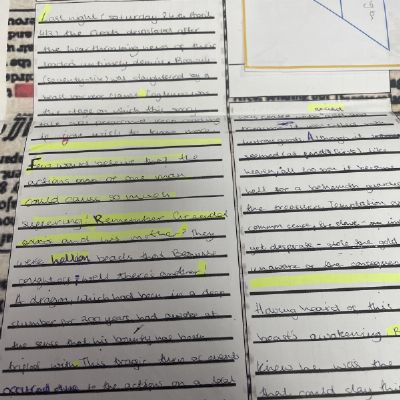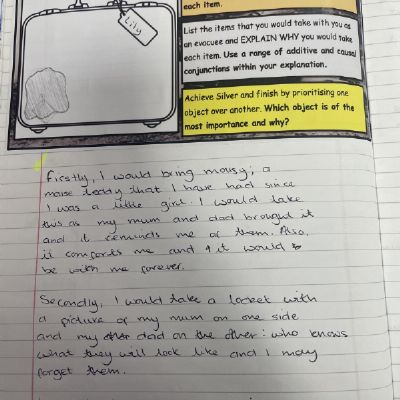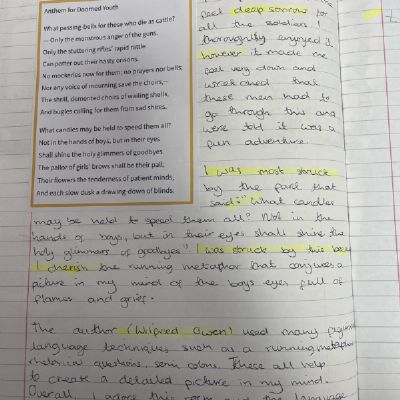Writing
Writing
We want all of our children to become successful and confident writers. From the beginnings of EYFS through to the end of Year 6 the children develop their writing skills through immersion in high quality key texts and visual units. For each unit of work (key text) the children are expected to produce at least two pieces of high quality writing. Below is an overview of the key texts that children will enjoy over the coming 2022-23 academic year.
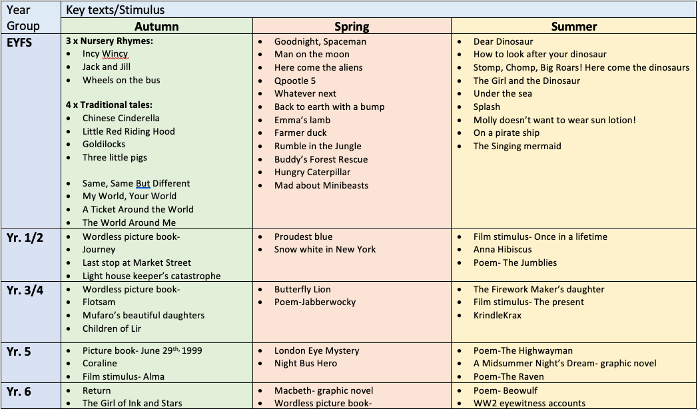
There are four essential components in the way we explicitly teach the writing process at St Peter’s. These are the immersion, deconstruction, e-plan and success criteria.
Phase One:
- Context: We plan our learning on the knowledge the children will need to understand the book they are reading. Teachers read the book and identify areas of knowledge that the children will need to know. We actively address any difference in cultural capital.
- Immersion and vocabulary exploration: Children are immersed in the quality key text using pictures, visual media, drama and oracy. Alongside this, an ambitious vocabulary is explicitly taught in preparation for later writing. Links are drawn between the key text and books previously studied e.g. 'Children of Lir' and 'Mufaro's Beautiful Daughters.'
- Oral rehearsal: Within EYFS and KS1 oral rehearsal is a fundamental part of the writing journey. Oral rehearsal of the key text continues to be a focus within KS2.
Phase Two:
- Explicit grammatical teaching: Following the immersion phase, children are explicitly taught a focus GPS technique in line with curriculum expectations and for use in the final piece. Explicit links are drawn between grammar taught in previous years.
- Deconstruction: The children analyse a high-quality piece of text of the same genre as the piece they themselves will write. This will be a teacher written piece of extremely high quality; by writing it themselves we believe teachers truly gain a deeper understanding of the task which the children then have to undertake. Children are taught to identify applicable key features and narrative techniques. These sessions focus on deep discussion of authorial intent and its impact on the reader.
- E-plan: Having gained a clear understanding of the genre, KS2 children now plan their writing using the e-plan format. Explicit instruction is given as to the requisite skills needed to note take and draft and children use oracy skills to articulate their plan to a learning partner.
Phase Three:
- Success criteria: Children use a success triangle to self-select their areas for development- take ownership over their learning. This is scaffolded by the class teacher so as to ensure the level of challenge remains high.
- Writing: Extended writing takes place over several lessons with regular modelling by the class teacher. Children are actively encouraged to use collective wisdom to improve their peer's writing.
- Editing: Editing is an essential part of the writing process and happens throughout the writing journey. Children in KS1 focus on simple grammatical/ phonetic corrections whereas children in KS2 focus on composition and impact on the reader.
